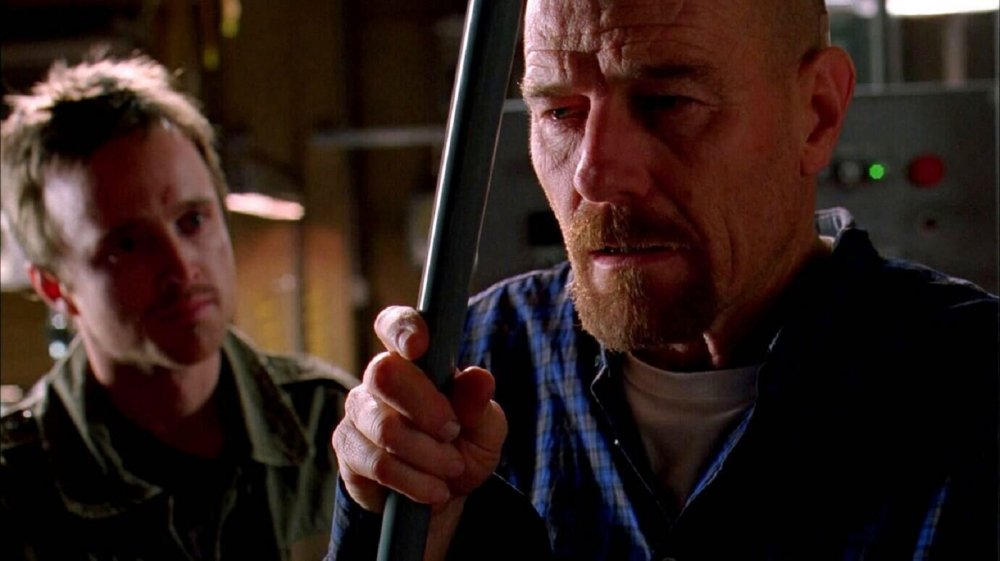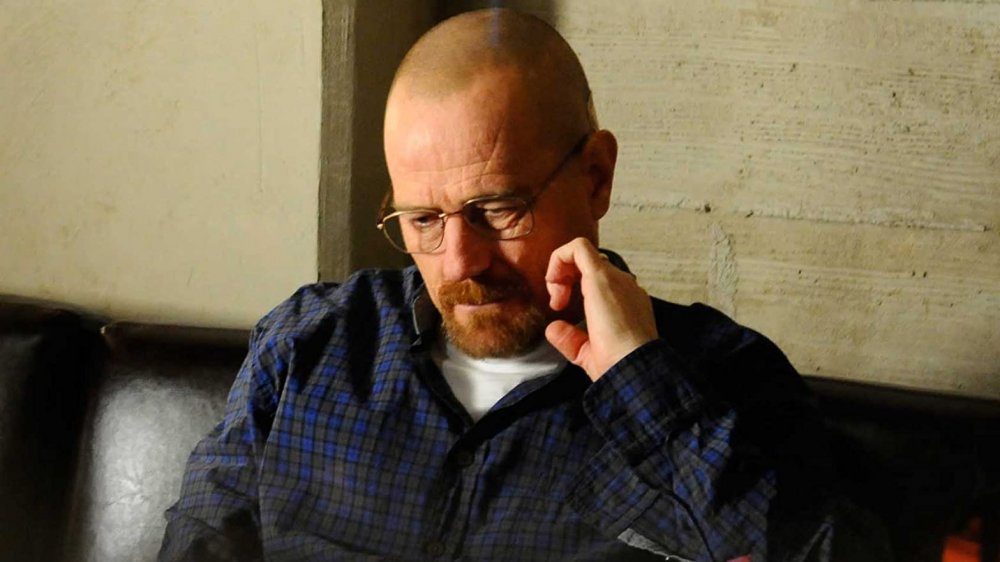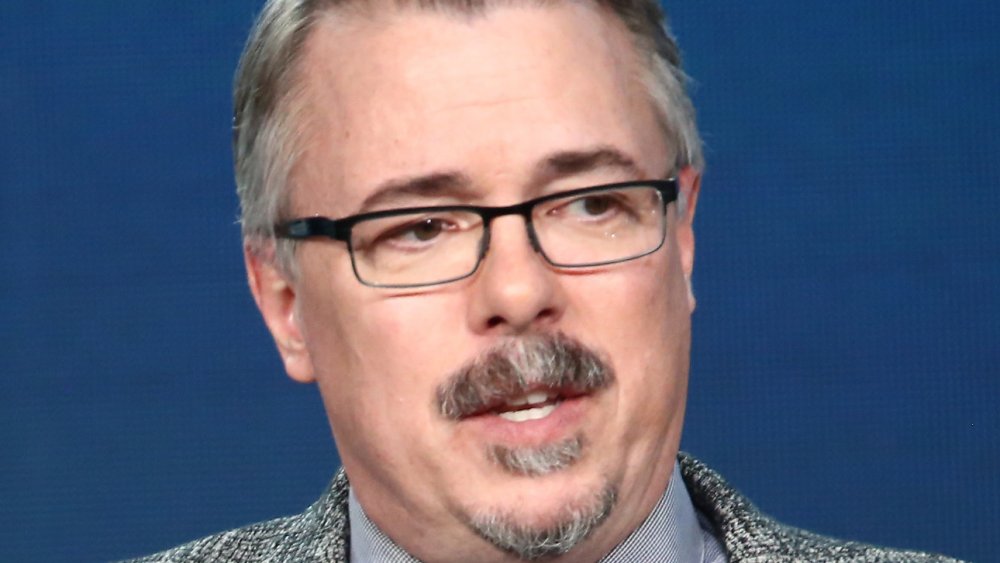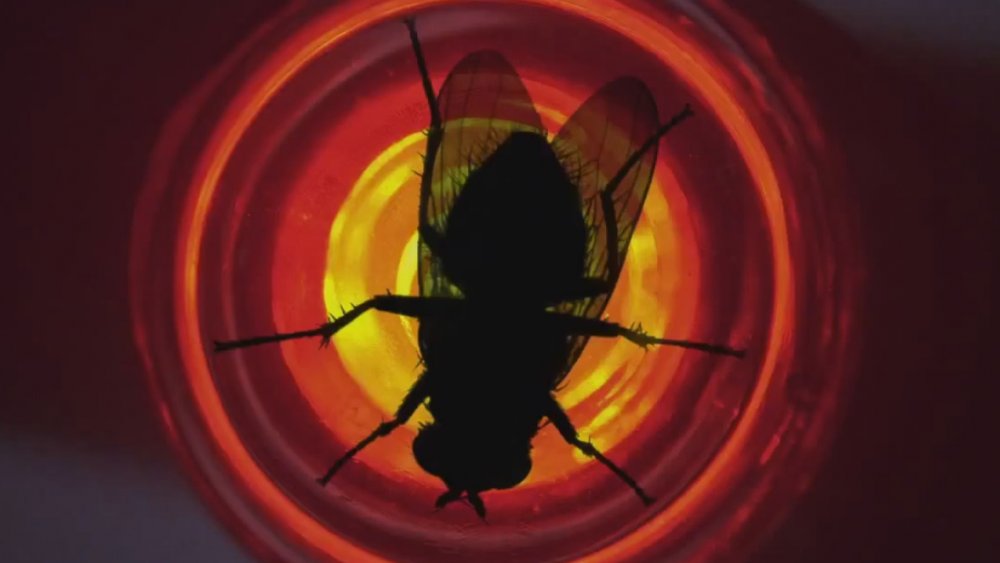The Untold Truth Of Breaking Bad's Bottle Episode
In showbiz parlance, a "bottle episode" of a TV series is one that focuses solely on one or two characters (often with no appearances by any supporting cast) and makes limited use of locations, with the action usually confined to just one set. Leslie Stevens, a producer on the '60s sci-fi anthology series The Outer Limits, is often credited as coining the term. While Leslie likened his technique of producing an episode limited in scope to pulling a genie out of a bottle, in its modern usage, a bottle episode more often reflects the aesthetic of taking a couple of characters, throwing them into a metaphorical bottle, and seeing how things react when they bounce up against each other.
Bottle episodes are frequently produced due to financial or time constraints, but not always. Sometimes, the decision to produce what's essentially a stage play for television can be a creative one, and some bottle episodes are considered to be among the best of their respective series. Animated shows like Archer and Family Guy have gotten great mileage out of the technique, as have sitcoms like Frasier and Friends. Brooklyn Nine-Nine's season 5 episode "The Box," which focuses almost solely on two detectives and a suspect in an interrogation room, is the series' highest-rated episode on IMDb, according to the site's registered users.
Other times, though, the technique can produce divisive results — as was the case with the tenth episode of Breaking Bad season 3.
The Breaking Bad episode "Fly" was a two-man show
In the episode, entitled "Fly," Walter White (Bryan Cranston) arrives at employer Gus Fring's (Giancarlo Esposito) super-lab after a sleepless night of watching a fly crawling back and forth across the blinking light of his bedroom's smoke alarm. Walt has his partner Jesse Pinkman (Aaron Paul) in tow, and the two get to work cooking meth. At the day's end, their yield, while acceptable, is a bit light. It's implied that Walter suspects (correctly) that Jesse has been skimming, but Jesse brushes it off as "spillage" before leaving for the day.
While cleaning up, Walter notices an intruder: a fly, the presence of which could contaminate the entire lab. Pouring himself some coffee, the man otherwise known as Heisenberg begins stalking the fly, which proves to be ridiculously difficult to catch. Throughout the night, Walter's efforts become more and more reckless — he even hurts himself after falling from a catwalk while trying to swat the darned fly — and when Jesse arrives in the morning, he's a bit concerned about Walter's mental state and lack of sleep.
After an argument during which Walter briefly locks Jesse out of the lab, the two resume Walter's fly hunt, knowing they can't cook until it's been dealt with. Jesse, still fearing that Walter is on the verge of cracking up, slips some sleeping pills into his coffee. As Walter becomes drowsy, the two have an in-depth discussion about their lives and their families — a long heart-to-heart that almost culminates in Walter confessing to Jesse that he watched while Jesse's girlfriend, Jane (Krysten Ritter), died of a drug overdose in her sleep and did nothing to help save her.
Jesse finally kills the fly and prepares their next batch as Walter crashes soundly. Later, as they're leaving, Walter tells Jesse of his suspicions that the latter has been skimming — not in anger, but more as a warning not to let Fring find out. Jesse denies his extracurricular activity, and later that night as Walter lies in bed, he finds himself still unable to sleep, again watching the fly that seems to have taken up permanent residence on his smoke alarm.
Breaking Bad's bottle episode served many purposes
According to Breaking Bad creator and showrunner Vince Gilligan, there were a multitude of reasons to impose the limitations of the bottle episode upon "Fly" — which, it should be noted, takes place right before an alarming number of things go wrong for Walter and Jesse and the narrative ramps up to a breakneck pace.
In a 2010 A.V. Club interview, Gilligan acknowledged that money-related considerations did come into play when devising the bottle episode. "There were certain financial realities involved with that particular episode," he stated. "The reason for doing a bottle episode is to help keep your schedule and stay on budget." In a separate chat years later with Vulture, Gilligan got more explicit, conceding that the third season of Breaking Bad was "hopelessly over budget" when "Fly" was conceived.
But this is Breaking Bad we're talking about, and Gilligan continued to say that the episode's languid pace and placement within the season were the result of careful consideration by his writing staff.
"Even if... financial realities didn't enter into it, I feel as a showrunner that there should be a certain shape and pace to each season, and the really high highs that you try to get to at the end of a season — the big dramatic moments of action and violence, the big operatic moments you're striving for — I don't think would land as hard if you didn't have the moments of quiet that came before them," Gilligan explained. "The quiet episodes make the tenser, more dramatic episodes pop even more than they usually would just by their contrast. That's the way we perceive it, and that's the way we try to shape our season."
"Fly" might be Breaking Bad's most divisive episode
In that same interview, Gilligan said that he "[felt] really good about that particular episode," while acknowledging that many fans found it to be a lull in the season.
Among critics, though, the episode was received quite a bit more warmly. The episode had as its director Rian Johnson, who would later handle the season 5 episode "Ozymandias," almost universally considered to be among the greatest episodes of television ever produced. (Of course, Johnson also directed the feature films Star Wars: The Last Jedi and Knives Out.) Critics widely noted Johnson's knack for disorienting, off-kilter compositions as lending to a mesmerizing, Twilight Zone-esque aesthetic — particularly during the throes of Walter's caffeine-addled duel with the fly — that kept the episode visually interesting.
Also, thanks to a sharp script from Breaking Bad veterans Sam Catlin and Moira Walley-Beckett, the dialogue between Walter and Jesse perfectly illustrated for viewers the increasingly cracked, co-dependent nature of their relationship.
It's telling that, according to registered IMDb users, "Fly" ranks dead last among Breaking Bad's 62 installments. And yet, it's difficult to find a critical review that doesn't lavish praise on the episode. At least one critic, Vulture's Matt Zoller Seitz, named it as the single greatest episode of the entire series — and that was in 2013, after Breaking Bad had concluded.
To put it mildly, it may not be a fan favorite, but for the vast majority of critics, "Fly" is a criminally underrated Breaking Bad episode that sticks in the mind — circling around and around, like some kind of pesky little insect that just won't leave.



